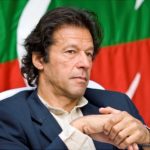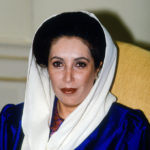Dr Kiran Hassan
Associate Fellow, Institute of Commonwealth Studies
It is still too early to assess whether Pakistan’s newly elected Prime Minister Imran Khan, is going to deliver on his promise of transforming Pakistan. However, there are three indicators which suggest that his government will
Imran Khan’s career in politics boomed recently because he highlighted the corruption of Pakistan’s two leading political parties. The previous Prime Minister Nawaz Sharif’s disqualification from the 2018 election and his imprisonment on the basis of mega-corruption scandals in the aftermath of the ‘Panama Papers’, boosted Khan’s
election campaign. Nawaz’s brother, Shahbaz Sharif (the former chief minister of Punjab and the current leader of the opposition) is currently in jail for another corruption scandal, the Ashiana Housing scheme accused by the National Accountability Bureau (NAB). A month after the newly elected government, Pakistan’s premier Court formed a Joint Investigation Team (JIT) to probe alleged laundering of billions of rupees through fake bank accounts which were leading to the involvement of former president, Asif Zardari (Leader of Pakistan People’s Party) and his sister Faryal Talpur. According to Pakistani television channels, the fake bank accounts and mega money laundering case is likely to place Mr Zardari in jail in the coming weeks.
This is not the first time when corruption allegations have played havoc with Pakistani politics, especially with Mr
Nawaz Sharif and Mr Asif Zardari. Mr Zardari when he was married to his late wife Benazir Bhutto (twice Prime –minister in the 1990S) was often referred to as Mr 10 % because of his shady deals. The ruling Sharif’s on the other hand have been known to advance their personal wealth taking advantage of their public office. Both of them used the accountability finger for mega money laundering and gross misuse of public office to mainly discredit each other. This is one of the dominant reasons why these political parties could not finish their terms during the 1990s.
More recently and coming back into power in 2008, both the PMLN and PPP used the corruption slogan more for optics rather than implementation. For both these parties, corruption had become synonymous to politics until Imran Khan appeared on the scene. Khan, who had neither been in power nor was he known to be corrupt, reinvented the anti- corruption campaign which enjoyed massive appeal.
After almost three months in power, Khan’s follow-up on corruption shows two trends. Firstly, a legal commitment towards targeting corruption scams shows that his anti- corruption crusade is so far successful. Secondly, because he himself remains untarnished, his promise to tackle Pakistani corruption is welcomed domestically and internationally. For instance, the UK has joined Pakistan in a new Justice and Accountability Partnership which will help Pakistan tackle the scourge of corruption. This partnership includes an initial £750,000 to support Pakistan pursue those involved in money laundering and the appointment of a new envoy on Justice and Accountability.
According to a leading economist, Dr Moonis Ahmer, Mr Khan has already set a trend for a new Pakistan because, since 1972, no regime has ever taken effective measures against corruption and nepotism. The problem had become particularly grave because of tax-evasion and kickbacks in various national projects costing the country around Rs 1 trillion annually. If Imran Khan can bring a cultural change in the embedded double standards, which have been predominantly feudal or ‘ darbari’, he will leave a mark in the political history of Pakistan.
In his first speech as Prime Minister, Khan announced he would pursue a policy of austerity, seeking to wean the country off its huge debts. Khan’s frugal precedent regarding government funds has also been very well received locally and internationally. It has provided a fresh breath of air after his predecessors who were famous for extravagant indulgences on public money. For example , according to the Pakistani press, the country’s previous Prime Minister Nawaz Sharif took 64 international tours during his third term over which a total of Rs. 650 million was spent while his Speaker spent over Rs. 80 million out of a total budget of Rs. 180 million reserved for national assembly on foreign visits. On his foreign tours, Nawaz Sharif was usually accompanied by over 631 staff members, proving just one example of his exorbitant misuse of government money.
Khan’s pre – election promise was to cut down government spending on luxuries. Keeping to his word, his government has auctioned his inherited fleet of 80 luxury vehicles (out of which 33 are bulletproof) and choosing instead to travel in two. His personal staff is phenomenally reduced from 524 into a single digit team.
Khan’s simplicity has a remarkable appeal for Pakistani diaspora and is setting a great example of ‘Naya Pakistan’. Pakistanis living abroad are more likely to trust Khan’s government because, unlike previous governments, he himself is not looting the money, so they feel more confident to do business and invest in Pakistan. Moreover, by showing that his government is pursuing long term tax reform, he is prompting a cultural shift amongst Pakistan’s wealthy elite. Previously, tax evasion touched epidemic national standards because the general public opinion was why pay taxes when it will end up in the pockets of corrupt politicians and bureaucrats? Indeed, such practices are deeply engrained in the political culture, bureaucracy, military and security services, and business practices, but with the upper echelons of power getting into order, legitimate tax payments may be prioritised over obscenely unaccountable living standards.
Many leading economists believe that Mr Khan’s much-hyped austerity drive is a good step taken by the new government in the initial days of its rule, but the road of economic stability is quite bumpy and the government should take more “practical” steps to bring economic reforms in the country in time. But according to an Islamabad based strategic and political analyst Mr Yasir Maqsood, Mr Khan’s austerity campaign launched by the government is meant to explore all avenues to generate additional revenues and is principally an act to get hold of the worsening financial situation.
Pakistan’s relationship with the United States has always remained alarmingly one sided, with United States dominating Pakistan either through obvious dictation or by colluding with the country’s corrupt military or political leaders. A critic of US foreign policy in South Asia, Mr Khan has been vehemently against the US invasion of Afghanistan and American drone attacks on the Pakistani tribal regions during most of his political career. Since then, little has changed. Mr Khan differs hugely from his military and political predecessors who would bend backwards to accommodate the superpower, and is instead demanding reciprocity and balance. Mr Khan is shifting the optics of the most significant relationship which is the United States which indicates Islamabad’s modifying foreign policy.
Not attending the UN general assembly session and his recent twitter spat with President Donald Trump are examples, underlining that Mr Khan is ‘walking his talk’. `In a recent interview with Fox News, President Trump asserted that Pakistan doesn’t ‘do a damn thing” for the US, and once again blamed Pakistan for allegedly sheltering bin Laden. Responding to President Trump on Twitter, Khan listed ways in which Pakistan assisted the US. He wrote, “[The] record needs to be put straight on Mr Trump’s tirade against Pakistan: 1. No Pakistani was involved in 9/11 but decided to participate in US War on Terror. 2. Pakistan suffered 75,000 casualties in this war & over $123 bn was lost to the economy. US “aid” was a miniscule $20 bn.’
Prime Minister Khan’s recent official visits to Saudi Arabia, China, UAE and Malaysia, show that he may focus more towards China and the Muslim world rather than relying on the west. Many argue that given the inheritance of an economy in dire straits, Mr Khan is reaching out to these countries because there seemed to be no other option for him other than to approach old friends, Saudi Arabia and China, for financial help. But even though his government is negotiating an IMF bailout package, his approach towards the United States massively sets him apart from Pakistan’s other political and military leaders who have always rushed to Washington, especially during times of economic crises.
Unlike his predecessors, in a recent press conference, when asked about civil-military relationships, Mr Khan replied “We are not facing any undue pressure from any institution. We’re working along with the security institutions in accordance with the Constitution,”
After a very long time, Pakistan’s top troika (political, military and judicial) works well amongst each other which predicts institutional strength. All seem to be on the same page, which means that a uniform domestic and foreign policy is underplay and expected. Replicating other countries, Pakistan is adopting the “Pakistan comes first policy”. Most foreign governments at best are welcoming the new Pakistani government’s anti-corruption crusade but are also preparing themselves to swiftly adjust to the changed rules. Domestically, there are considerable hopes for a transformed Pakistan. Khan’s government freed and vows to provide protection to the wrongly aquitted Aasia Bibi. This is definitely a refreshing change from the previous Pakistani governments, who after her unjust punishment and imprisonment which led to the horrific murders of late governor Salman Taseer and federal minister Shahbaz Bhatti, chose to look away and remain silent.




A very fair, objective analysis devoid of bias and based on ground realities.
Very nicely written article, structured and retains attention of reader. Focusses well on the on-ground situation in Pakistan. Would it be appropriate to include possible suggestions like how would it be possible to reclaim the looted money from the Sharifs?